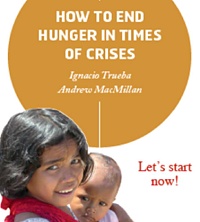I first met Grace Andiki at a meeting with elders in Bondo in 2001 while seeking ideas on the priority actions that the District should take with international support to address the scourges of recurrent drought and HIV/AIDS which were inflicting enormous damage on the people of the area. While the men, who dominated the meeting, put forward hugely ambitious multi-million dollar project proposals, Grace pointed to the emergent challenge to the community caused by the very rapid rise in the number of orphans in the District. She saw the importance of getting orphans into school, so that they could be equipped with the learning and life-skills that they would desperately need in future, without which they would be condemned to live on the fringes of local society.
When I returned to Bondo a few months later, at her own initiative, Grace had completed a survey of all the school-age orphans in East Yimbo and had begun to create the Got Matar Community Development Group as a vehicle through which to engage key people in planning, priority setting and programme implementation.
I have been able to return to Got Matar several times and have been impressed by the amount which has been achieved with the modest resources which we and others have contributed since 2001. This encourages me to believe that the Secondary School project has a high chance of success.
When I talk to members of my family as well as friends about contributing more towards better livelihoods for the most disadvantaged people in rural Africa, they often say that they would really like to be more generous but are concerned that the funds might go astray. Others question whether the small amounts that they can give can possibly have a real impact on peoples’ lives. In the case of Got Matar, all the precedents indicate that funds will be carefully managed and well spent and that even very small gifts can make a huge difference for the poorest people in the area. I am absolutely certain that the opportunity for home-grown secondary schooling will ensure that many young people, especially orphans, will stay longer in school and acquire the knowledge and practical skills which will enable them to escape permanently from the dire poverty and chronic hunger that now afflict so many people in Western Kenya. If educated within the area, more will stay on there after leaving school and provide the skills needed for further development.
My wife and I are determined to make a substantial contribution towards the costs of the programme. I am sure that we can count also on your generosity. We undertake to keep you regularly informed of the amount of funds raised and of implementation progress.
If all goes well in Got Matar, as we hope, it could set a precedent for similar initiatives elsewhere in the country.
Andrew MacMillan
1st September 2006
